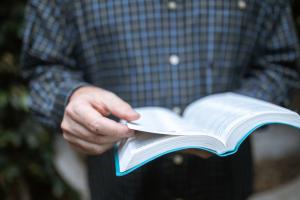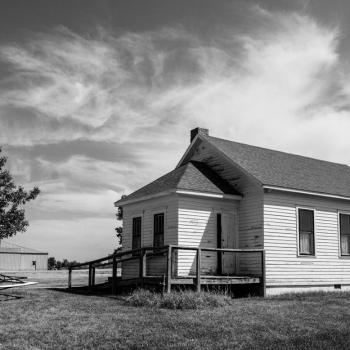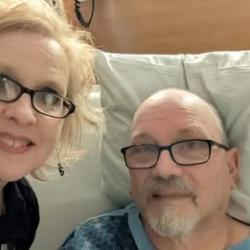
“Hello, I’m Karl and I’m an Evangelical Christian.”
“Hi Karl.”
Although I probably wouldn’t actually call myself a Christian, I think it is extremely important to realize that Evangelical Christianity is my root belief system that formed me from an earlier age. It is my framework for organizing my beliefs, it is the originating source of my worldview, and it is the backdrop of much of my trauma.
I can’t just dismiss any of that and move on to something else. Otherwise, I would end up, like the addict, substituting one addiction for another. Make no mistake about it, religion is most definitely an addiction. It promises quick fixes and easy answers, and when the high wears off, we simply hope more will be better and find ourselves trapped by the drug that once promised us freedom from whatever we felt bound by.
I also can’t embrace this system any longer. There is too much about this man-made system that doesn’t answer the questions of life adequately and seems to only produce more trauma. It’s binary approach, patriarchal organization and exclusionary tactics leaves me wondering why we ever decided this was the right approach anyway. When I take an honest look at my origins, I see widespread evidence of abuse, misogyny, racism, hatred and ineffectiveness.
The Evangelical Church in America seems to be very good at building organizations that have no idea how to address the problems of the world or how to stop making the mistakes of the past. It is a failed experiment and it needs to be abandoned. I highly recommend Jesus and John Wayne by Kristin Du Mez. It is very well researched and clearly documents most of the history of this movement which includes my roots, the Southern Baptist Convention.
I no longer will even investigate systems that originate in fear or hatred. If the sermon begins with what we should fear or what we should hate, then I don’t even want to the hear the punch line or invitation at the end. It’s a sales job to buy a product that shouldn’t even be sold. Fear and Control should have never been introduced into the system, much less allowed to be the primary mode of operation.
Let’s talk about love, compassion and empathy and how to start moving toward these greater goods and better angels. I’m not really concerned about what system gets us there as long as it’s centered around what we’re all longing for, instead of what we’re afraid of. If we pay attention, there are examples of this better path — the trouble is it didn’t come from a single system in our past. We catch glimpses of it in all our man-made religious, but there is not one of them that encapsulates truth or gives us a complete prescription for the journey.
So what about my history?
First of all, it’s important to appreciate the foundations that were helpful. In my tradition, I was taught that love was supreme. Even though the congregants often strayed from this principle, it remains a guideline that seems to find roots in most spiritual and religious systems and make sense for moving forward. The kindness, empathy, forgiveness and mercy that Christianity supposes makes sense to my logic and my intuition. These are good things that are hard to argue with — if we only would practice them and accept them as primary instead of conveniences.
But, it is also important to understand what should be avoided from my tradition, not just what should be embraced. The wise person recognizes the traumatic and unhelpful parts of their religious systems and moves away from the harmful and hurtful parts. My denomination was founded upon racism. I cannot, in any way, lean toward these type of things that promote discrimination, hatred and exclusion. Paul encouragement, “Love must be free of hypocrisy. Detest what is evil; cling to what is good,” also applies to our religious systems.
We have to vehemently cling to what is pure (love, mercy, justice, forgiveness, inclusion) and cast off what is evil (racism, exclusion, control, fear, injustice).
But, maybe the most important part of my tradition is to realize that it didn’t have ALL the answers. The more we pay attention, the more we see truth in many of the places we look. Wisdom traditions have been discovering truth since humans began populating the planet. It’s terribly naïve to think that one group of people in one particular area has a corner on the truth market for all time. My recent journey has not only unraveled my previously held belief systems, but it has deeply broadened my understanding even though I have less certainty that I’m right about everything.
The journey continues, influenced by my past, but energized by new discoveries and courageous adventures.
The courage to face my past and heal from it, gives me boldness to face the future with awe and wonder.
My past forms and informs me, but it doesn’t conform me.
Be where you are, be who you are,
Karl Forehand
Order Being: A Journey Toward Presence and Authentic
Karl Forehand is a former pastor, podcaster, and award-winning author. His books include Apparent Faith: What Fatherhood Taught Me About the Father’s Heart and The Tea Shop. He is the creator of The Desert Sanctuary podcast. He is married to his wife Laura of 32 years and has one dog named Winston. His three children are grown and are beginning to multiply!
Support us on Patreon * The Desert Sanctuary Website

















